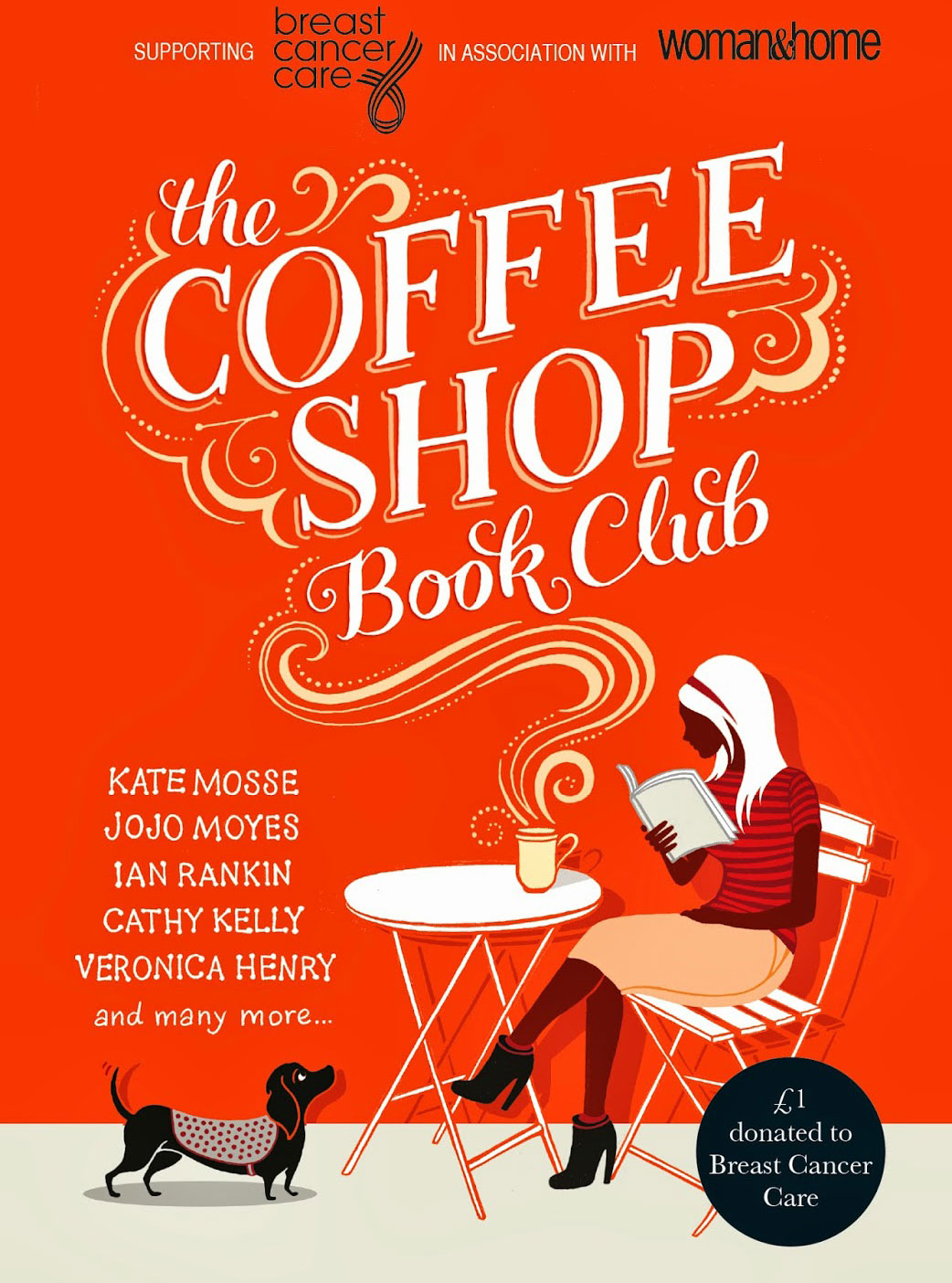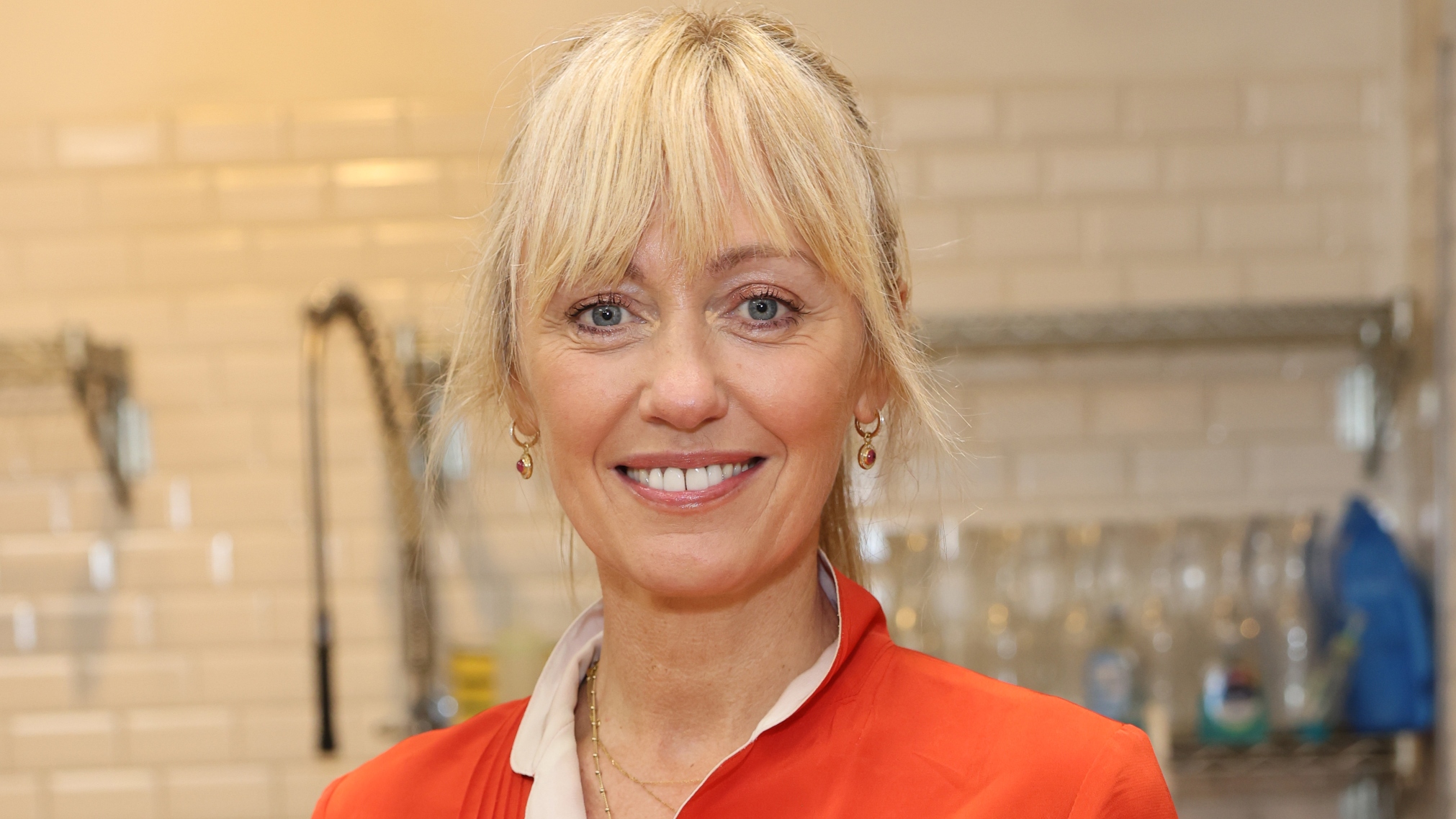The Ministry of Whisky, Val McDermind

Dip in to short story, The Ministry of Whisky, taken from The Coffee Book Club, a collection of terrific short stories raising money for Breast Cancer Care...
"There are two things everybody knows about John French the minister - he likes a dram, and his wife won't have a drop in the house. That's why he spends as much time as possible out and about, making himself at home with his parishioners. Even the strictest teetotallers, the dry alcoholics and the three English families understand they have to keep whisky in the house for the minister.
Newcomers to the parish who don't know the drill get their first visit seasoned with a heavy-handed version of the Wedding at Cana, complete with knowing winks and exaggerated gestures. If they don't get the message, Mr French mentions in passing to one of the kirk elders that such-and-such a body doesn't seem to have much grasp of the rules of hospitality. Then the elder has a quiet word ahead of the minister's next pastoral visit. Trust me, most folks don't have to be told twice. Don't get me wrong, Mr French is no drunk. I'm born and bred in Inverbiggin, and I've never seen him the worse for drink. I know who the village drunks are, and the minister isn't one of them.
OK, he maybe spends his life a bit blurred round the edges, but you can hardly blame him for that. We all need something to help us deal with life's little disappointments. And God knows, the minister has that to do twenty-four- seven. Because I don't think for a minute that Inverbiggin is where he planned to end up.
I've seen folks' wedding photos with Mr French when he first came here. God, but he was handsome. You can still see it now, even though he's definitely past his best. Back then, though, he looked like a cross between Robert Redford and the kind of pop star your granny would approve of.
A thick mane of reddish- blond hair, square jaw, broad shoulders and a gleaming row of teeth that were a lot closer to perfection than you generally saw in the backwoods of Stirlingshire back then. The looks have faded, inevitably, though he'd still give most of the men round here a run for their money. What's more important is that he's still a brilliant preacher.
At least half his congregation are agnostic - if not downright atheist. But we all still turn up on a Sunday for the pure pleasure of listening to him. It's better than anything you get on the telly, because it's rooted in our community. So imagine what a catch he was back when he started out, when he was good-looking and he could preach. Obviously, his natural home would have been some showpiece congregation in Glasgow or Edinburgh. The man has ex- future Moderator of the Church of Scotland written all over him.
Sign up for the woman&home newsletter
Sign up to our free daily email for the latest royal and entertainment news, interesting opinion, expert advice on styling and beauty trends, and no-nonsense guides to the health and wellness questions you want answered.
Something obviously went badly wrong for him to end up here.
Even its best friends would have to admit that Inverbiggin is one of the last stops on the road to nowhere. I don't know what it was that he did in the dim and distant past to blot his copybook, but it can't have been trivial for him to be sent this far into exile. Mind you, back when he arrived here thirty-odd years ago, the Church of Scotland was a lot closer to the Wee Frees than it is these days.
So maybe all he did was have a hurl on the kids' swings in the park on a Sunday when they should have been chained up. Whatever. One way or another, he must have really pissed somebody off. I don't know whether his wife knows the full story behind their exile, but she sure as hell knows she's been banished. There's no way this is her natural habitat either. She should be in some posh part of Glasgow or Edinburgh, hosting wee soirees to raise money for Darfur or Gaza.
One time, and one time only, she unbent enough to speak to me at the summer fete when we got stuck together on the Tombola. ‘He's a good man,' she said, her eye on Mr French as he glad- handed his way round the stalls. She gave me a look sharp as Jessie Robertson's tongue. ‘He deserves to be among good people.' Her meaning was clear. And I couldn't find it in my heart to disagree with her.
Her obvious bitterness is neutralised by the sweetness of her husband. Mr French might have had high-flying ambitions, but having his dreams trashed hasn't left him resentful or frustrated. It's pretty amazing, really, but in exchange for the whisky he's given us compassion and comprehension. Fuelled by a succession of drams, he seems to find a way to the heart of what we all need from him. It's not a one-way street either. The more he answers the challenge of meeting our needs, the finer the whisky that makes its way into his glass.
When he first started making his rounds, folk would pour any old rubbish. Crappy bargain blends that provoked instant indigestion, brutal supermarket own-brands that ripped the taste buds from your tongue, evil no-name rotgut provided by somebody's brother- in-law's best pal that made you think you were going blind. But gradually, his Good Samaritan acts spread through the community till there was hardly a household in Inverbiggin that hadn't been touched by them. Our way of saying thank you was to provide better drink. Quality blends, single malts, single-barrel vintages. You scratch my back, I'll scratch yours.
See, we all find our own ways to cope with living in Inverbiggin. The minister and his wife aren't the only ones who started out with higher hopes. Maybe it's precisely because his own dreams were dashed that he handles our failures so well. He intervenes when other people would be too scared or too discouraged to get in the middle of things. Kids that are slipping through the cracks at school - John French grabs the bull by the horns and takes on the teachers as well as the parents. Carers doing stuff for parents and disabled kids that none of us can think about without shuddering - John French goes to bat for them and scores relief and respite.
And then there was that business with Kirsty Black. Everybody knew things were far from right between her and her man. But she'd made her bed, and we were all content to let her lie on it. At least if he was taking out his rage on her, William Black was leaving other folk alone.
I must have been about twelve years old when I discovered why William Black was known as BB, a man notorious for his willingness to pick a fight with anybody about anything. ‘He thinks it stands for Big Bill,' my father told me after I'd had the misfortune to witness BB Black smash a man's face to pulp outside the chip shop. ‘But everybody else in Inverbiggin knows it stands for Bad Bastard.' My father was no angel either, but his darkness was more devious. I got the feeling he despised BB as much for his lack of subtlety as for the violence itself.
When Kirsty lost her first baby in the fifth month of her pregnancy, we all knew by the next teatime that it had happened because BB Black had knocked her down and kicked her in the belly. We all knew because Betty McEwan, the midwife, heard it from one of the nurses at the infirmary who apparently said you could see the mark of his boot on her belly. But Kirsty was adamant that she'd fallen getting out of the bath. So that was that. No point in calling in the police or the social services if Kirsty couldn't manage to stick up for herself.
Wee towns like Inverbiggin are supposed to be all about community, all about looking out for each other. But we can turn a blind eye as surely as any block of flats in the big city. We all got extremely good at looking the other way when Kirsty walked by.
All except John French. He saw the bruises, he saw how Kirsty flinched when anybody spoke to her, he saw the awkward way she held herself when her ribs were bruised and cracked. He tried to persuade her to leave her man, but she was too scared. She had no place to go and by then, she had two kids. The minister suggested a refuge, but Kirsty was almost as afraid of being cast adrift among strangers as she was of William Black himself. So then Mr French said he would talk to the Bad Bastard, to put him on notice that somebody was on to him. But Kirsty pleaded with the minister to stay out of it, and he eventually gave in to her wishes.
I know all this because it came out at the trial. Kirsty wasn't able to give evidence herself. She was catatonic by that point. But Mr French stood in the witness box and explained to the court that Kirsty had exhibited all the signs of a woman who had been reduced to a zombie-like state by violence and terror. He told them she had been determined to protect her kids. That she'd been in fear for her own life and the lives of her children that Friday night when he'd come home roar- ing drunk, and she'd picked up the kitchen knife and thrust it up into William Black's soft belly.
You could see the jury loved John French.
They'd have taken him home and sat him on the mantelpiece just for the sheer pleasure of listening to him and looking at him. He surfed the courtroom like a man riding on the crest of a wave of righteousness rather than a wave of whisky.
The prosecution didn't stand a chance. The jury went for the ‘not proven' verdict on the culpable homicide charge, and Kirsty walked out of the court a free woman. It took some more work from Mr French, but eventually her lawyers got the kids back from social services and she moved back home. Everybody rallied round. I suppose ignoring what had happened to Kirsty kind of guilt-tripped us all into lending a helping hand. Better late than never, the minister pointed out one Sunday when he gave us his particular take on the Good Samaritan story. He was adamant that we should open our hearts and put our faith in God.
But here's the thing about people like John French. Like his wife said, he does deserve to be among good people. Because being ready to think the best of folk leaves you wide open to the ones that can't wait to take advantage. And there are one or two like that in Inverbiggin.
Take me, for example. I've been out of love with my husband for years. He's a coarse, uncouth, ignorant pig. He's never dared to lift a hand to me, but he disgusts me. Worse still, he bores the living daylights out of me. When he walks in a room, he sucks the life out of it. There is one positive thing about my husband, though. His job comes with terrific death-in-service benefits.
And then there's that lovely big insurance policy. Frankly, it'll be worth every penny I've spent on rare malts and exclusive single-barrel vintages.
Because I've been planting the seeds for a while now. I used to do amateur dramatics years ago. I can play my part well, and I can paint a bonny set of bruises on my back and my ribs. Good enough to fool a man whose vocation would never let him examine a woman's injuries too closely. I even got him to take some photos on my mobile phone. If the police examine them later, they won't be able to make out too much detail, which suits me just fine. And after all, there's precedent now. Nobody would dare to doubt John French, not after the publicity Kirsty's case earned him.
Never mind putting my faith in God. Me, I'm putting my faith in John French and the ministry of whisky."
-
 Kate Middleton and Prince William will spend 14th anniversary in place that holds both 'happiest' and 'saddest' memories
Kate Middleton and Prince William will spend 14th anniversary in place that holds both 'happiest' and 'saddest' memoriesJust like King Charles and Queen Camilla, the Prince and Princess of Wales will mark their wedding anniversary away from home this year.
By Emma Shacklock
-
 Clodagh McKenna’s olive green Zara trousers are under £60 - this springtime essential will get you ditching your jeans
Clodagh McKenna’s olive green Zara trousers are under £60 - this springtime essential will get you ditching your jeansJeans will always have a place in our wardrobe but a great pair of tailored trousers makes a lovely change and can be equally versatile.
By Emma Shacklock